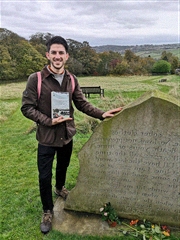Tutor HuntResources English Resources
How To Answer Gcse English Literature Essay Questions
Want to know how to boost your GCSE English Literature grade? Read on for a simple yet effective tip to improve your writing.
Date : 21/09/2022
Author Information

Uploaded by : Edward
Uploaded on : 21/09/2022
Subject : English
There is a simple common mistake made by teachers and students up and down the UK when studying GCSE English Literature texts.
Making this mistake limits responses to the lower end of the mark scheme and puts all your hard work to waste. If you want to make it into the upper echelons of the mark scheme, you need to make this straightforward change to your approach right now.
Many students (and teachers) incorrectly spend too much time and energy learning the plot and characters of novels, plays and poems they study. Yes, it is crucial to know and understand what happens and who the characters are, but this knowledge won`t get you a top grade.
Likewise, being able to memorise quotations is incredibly useful, but so many memorised quotations are too long and badly integrated into essays.
Here`s what you need to do: when studying a text, make sure you can identify and understand the big ideas and concepts the text is about. This is crucially different from `what happens`. For example, in An Inspector Calls, what happens is that a police inspector interrupts a family dinner to interrogate a middle class family about their involvement in the death of a young woman. But what this text is really about is abuse of power, oppression, corruption, patriarchal privilege, class, gender and wealth inequality, discrimination, poverty etc.
This is so important because by understanding that the text is about these ideas and concepts, you can then make links and connections to our modern context as readers (audience members in this case) and consider where these ideas came from in the first place (the writer`s contexts of production). This text`s ideas and concepts will land differently when viewed by an audience in 2022 compared to 1945, but - vitally - many ideas persist and remain relevant today.
Therefore my advice is this: learn the plot and characters as fast as possible. Spend the rest of your time discussing and writing about the big ideas and concepts the text interacts with and join the conversation.
Extra tip: using abstract nouns rather than adjectives creates a more sophisticated response. For example, rather than stating that Sheila is ungrateful, try referring to Sheila`s ingratitude.
Interested and want to learn more? Book a session with me today. Available from January 2023 to help you in the run up to your GCSE or A-Levels exams.
This resource was uploaded by: Edward
